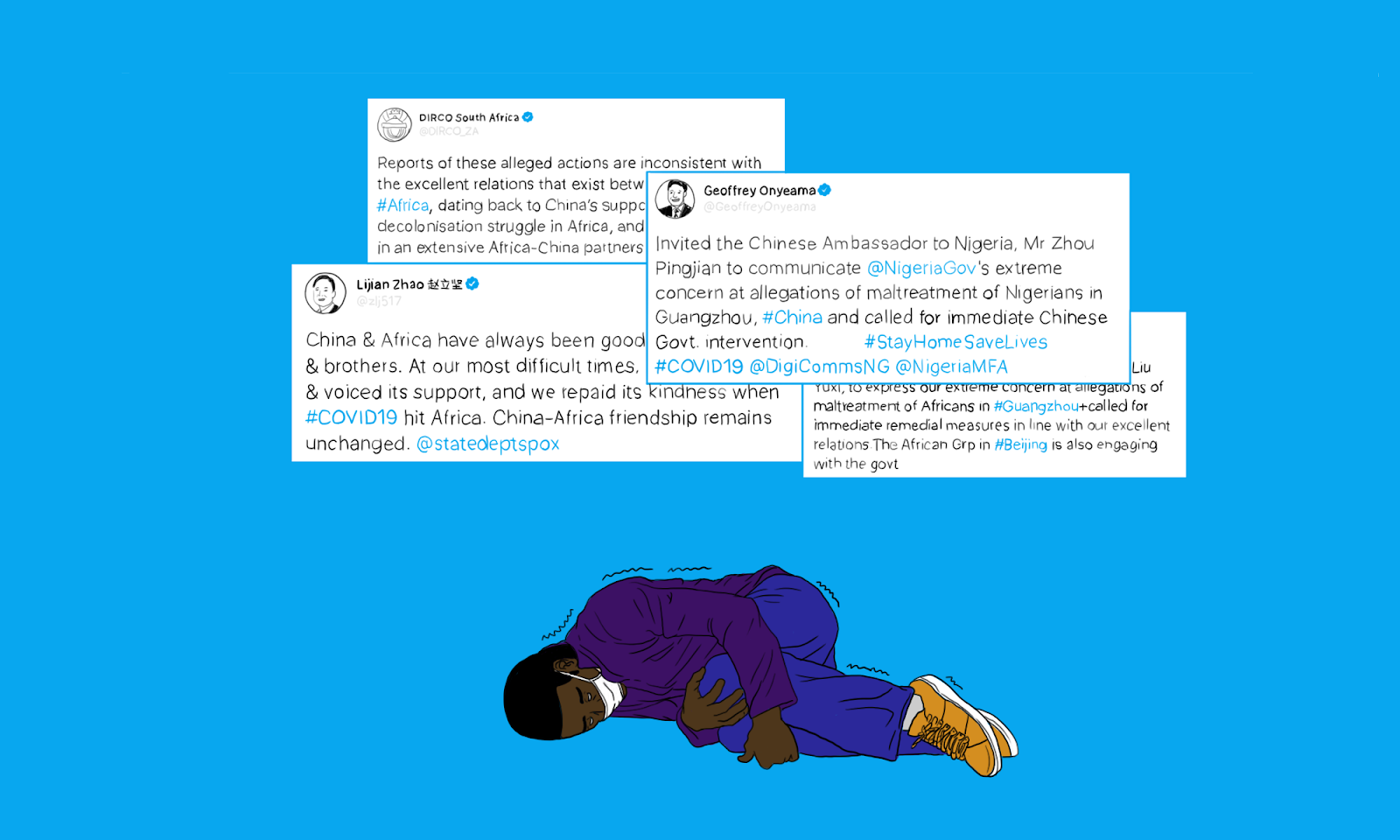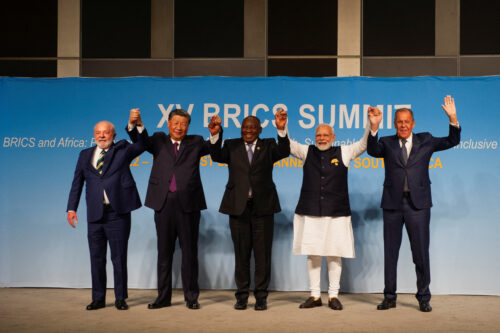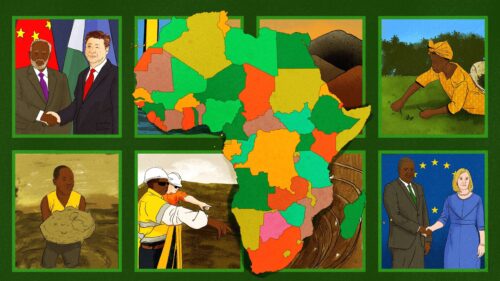China-Africa relations face an ‘unprecedented rupture’
African residents in Guangzhou have reportedly have been evicted from homes.

The China Project illustration by Derek Zheng, based on an image of evicted Africans sleeping on the streets of Guangzhou, one of many images and videos that have gone viral on African social media since April 9.
African migrants in Guangzhou have in recent weeks faced a “rising tide of discrimination driven by both coronavirus-fueled xenophobia and deep-rooted prejudice against black people in China,” The China Project’s Jiayun Feng reported last Wednesday.
Then, the evictions started. Eric Olander at the China Africa Project writes that the recent treatment of Africans in Guangzhou has led to an “unprecedented rupture” in China-Africa relations over the weekend.
Beginning late Thursday China time, photos, videos, and other accounts began to surface on Twitter and Facebook depicting young African migrants being forced to leave their homes and hotels. These evictions largely took place in Guangzhou’s Yuexiu district…home to the largest African diaspora populations in China, and Asia at large.
A key turning point occurred on Friday, when photos of young men forced to sleep outside on the street, visibly cold and wearing surgical masks to protect them from COVID-19, started going viral on Facebook and Twitter.
The reaction in Africa was immediate and furious. African social media users took to Twitter under the hashtag #ChinaMustExplain to vent their anger, frustration and concern. Sensing the severity of the crisis and the surging outrage, African politicians began to call in Chinese ambassadors to their foreign ministries to express their concern.
A few examples: The Chairperson of the African Union Commission expressed his “extreme concern at allegations of maltreatment of Africans in Guangzhou,” and the Nigerian Foreign Minister tweeted almost the exact same thing. The Ministry of Foreign Affairs of Ghana wrote to “highly condemn this act of ill-treatment and racial discrimination.”
There was also “an unprecedented video of China’s ambassador to Nigeria, Zhōu Píngjiàn 周平剑, being dressed down by the Speaker of the House of Representatives Femi Gbajabiamila,” Olander notes.
Beijing reacted slowly, with foreign ministry spokesperson Zhào Lìjiān 赵立坚 saying only on April 9 that “we treat all foreign nationals equally in China,” and then completely avoiding the topic for the next two days. On Sunday, April 12, CGTN Africa published “Foreign Ministry spokesperson remarks on Guangdong’s anti-epidemic measures concerning African citizens in China,” which contains a series of stock phrases that Chinese diplomats across Africa are now repeating.
Beijing’s official remarks contain no apology, or even “any hint of acknowledgment that something has gone wrong,” Olander writes. “Without an apology or some other expression of regret from Chinese officials, African presidents and prime ministers will find it very difficult to simply move on to other issues like debt relief and cooperation with China on COVID-19 prevention.”
Instead, Beijing is blaming the U.S. for “false, immoral, and irresponsible” accusations of mistreatment of Africans in China, and accusing the U.S. of “driving the wedge between China & Africa.”
More details on what is happening in Guangzhou can be found in these reports:
- Africans in Guangzhou are on edge, after many are left homeless amid rising xenophobia as China fights a second wave of coronavirus / CNN
- Africans in China being evicted from homes after lockdown ends / Quartz Africa
- Africans caught up in Guangzhou campaign to contain imported infections / Caixin
- U.S. warns African-Americans to avoid Guangzhou after reports black people are being targeted in coronavirus clampdown / SCMP
- McDonald’s China apologizes for turning away black customers in Guangzhou / Shanghaiist






